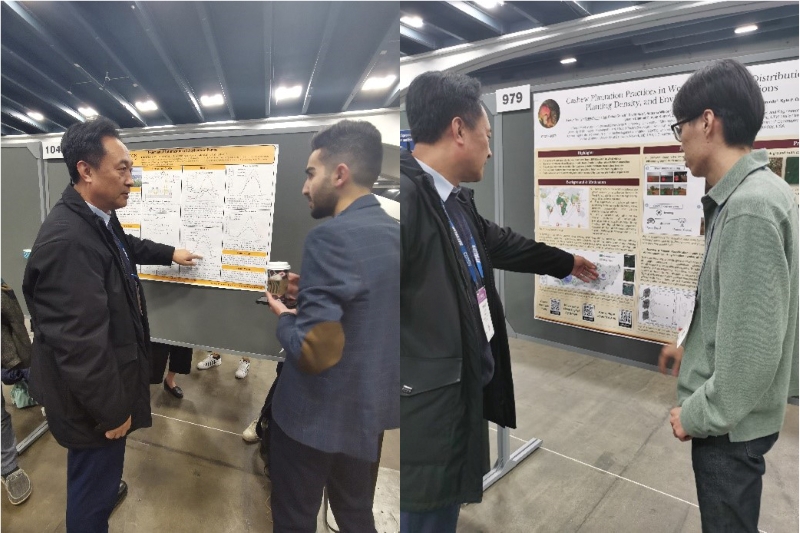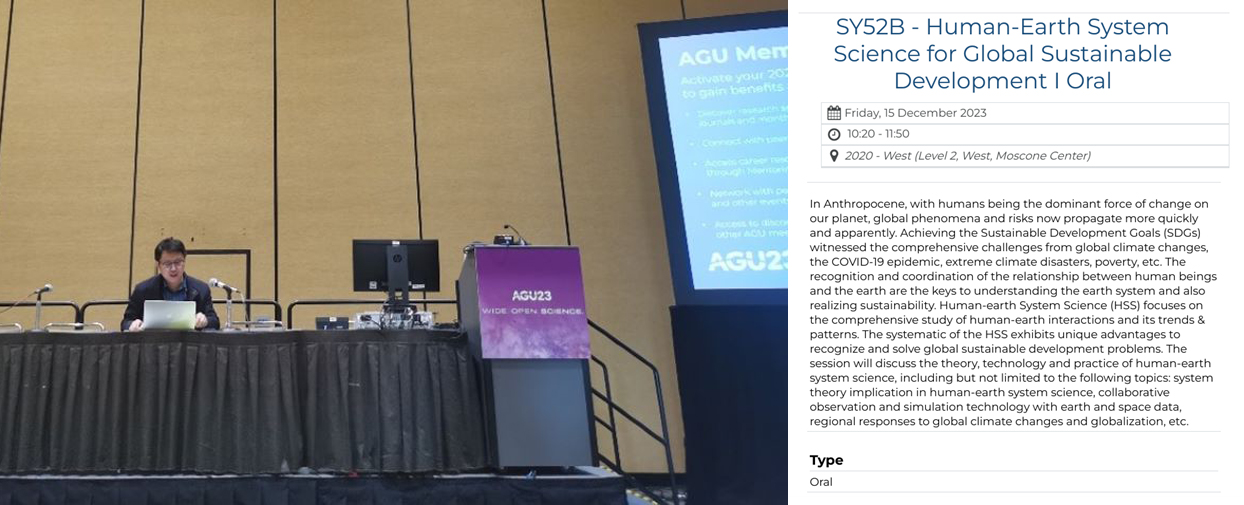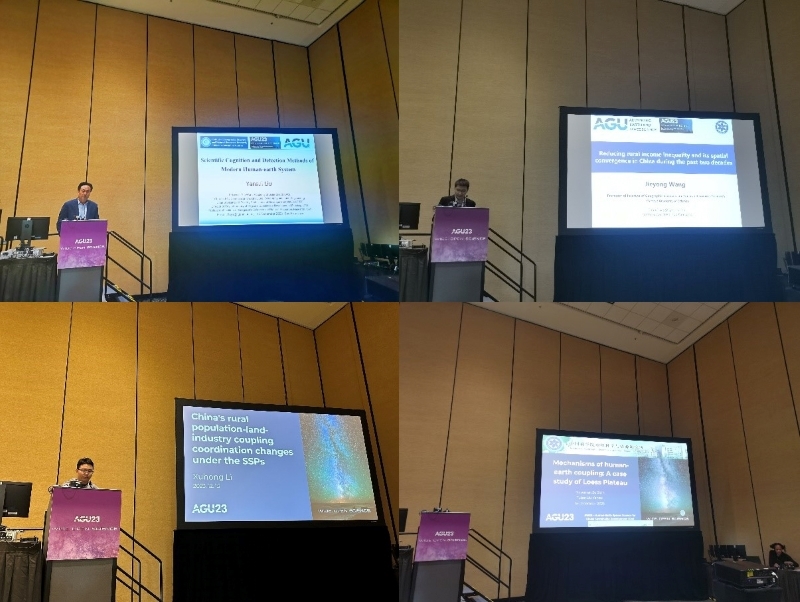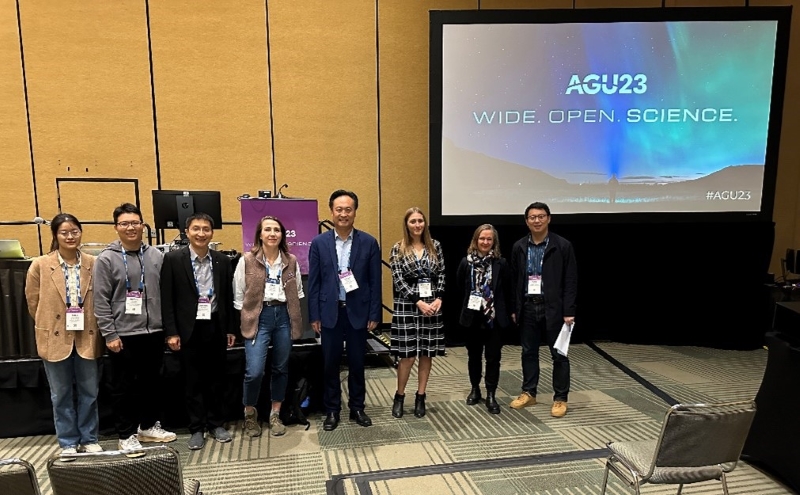

Researcher Yansui Liu's team organized a session at AGU23
The American Geophysical Union's 2023 Annual Meeting (AGU23) took place from December 11 to 15, 2023, at the Moscone Convention Center in San Francisco, USA. This conference brought together over 20,000 researchers in the fields of physical geography, oceanography, geology, and global climate change to share cutting-edge research findings, enhance understanding of the Earth and its environment, raise awareness about climate change, and foster greater collaboration to seek solutions. At the invitation of Nicole Oliphant, the Scientific Program Director of the American Geophysical Union, Researcher Yansui Liu, Jieyong Wang and Yurui Li attended the conference in San Francisco from December 11 to 15. On the morning of December 12, the team visited the poster exhibition at the Moscone Convention Center to engage in discussions and deep-dive conversations with young scholars on topics of mutual interest.
On the morning of December 15, at the session "SY52B: Human-Earth System Science for Global Sustainable Development", Researcher Yansui Liu, Jieyong Wang, and Yurui Li, as the initiators, introduced the background, purpose, and themes of the session. Under the moderation of Researcher Yurui Li, the presentations proceeded in sequence. Researcher Liu Yansui delivered a presentation on "Scientific Cognition and Detection Methods of the Modern Human-Earth System", discussing global climate change and sustainable development issues in the context of globalization, emphasizing the interdisciplinary nature of human-environment systems in natural and social sciences. He utilized diverse data sources and targeted modeling methods to reveal the types, structures, and spatiotemporal evolution of human-environment systems at global, regional, county, and village scales. He concluded by proposing paradigms for human-environment system research, a multi-source data platform for human-environment system research, and further theoretical considerations for advancing human-environment system science. Researcher Jieyong Wang presented on "Reducing Rural Income Inequality and Spatial Convergence in China Over the Past Two Decades", providing an overview of the background and poverty reduction process of rural income inequality in China. Using various modeling methods, he analyzed the evolving characteristics of rural income inequality in China and its spatial convergence features, highlighting the impact mechanisms of China's targeted poverty alleviation policies on income disparities and offering policy recommendations. Dr. Xuhong Li presented on "China's Rural Population-Land-Industry Coupling Coordination Changes under the Shared Socioeconomic Pathways (SSPs)", simulating and predicting rural elements under shared socioeconomic pathways to explore their coupling coordination characteristics and proposing policy measures to promote the coordinated development of rural human-environmental elements. Dr. Sixin Su participated online and presented on "Mechanisms of Human-Earth Coupling: A Case Study of the Loess Plateau", discussing the interactive coupling relationships and spatiotemporal evolution between socioeconomic factors and natural geographical environments on the Loess Plateau. He suggested promoting regional ecological industrialization through geotechnical engineering and human-environment coupling approaches.
During the conference, attendees engaged in friendly exchanges with experts and young scholars from renowned international institutions, including Stanford University, Boston University, University of Minnesota, and Ludwig Maximilian University of Munich, discussing potential future collaborations.

Researcher Yansui Liu interacted with young scholars 
Researcher Yurui Li moderated the meeting and introducing the session

Researcher Yansui Liu, Jieyong Wang, Dr. Xuhong Li, and Sixin Su presented at the conference

Group photo of presenters at the session site